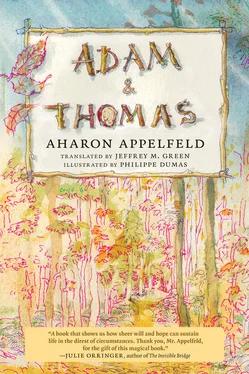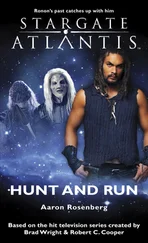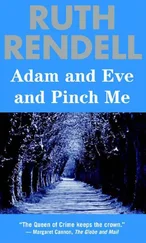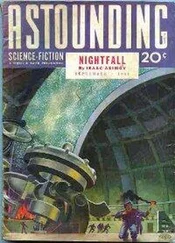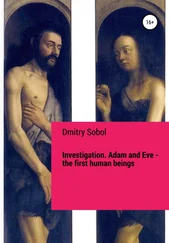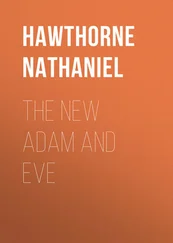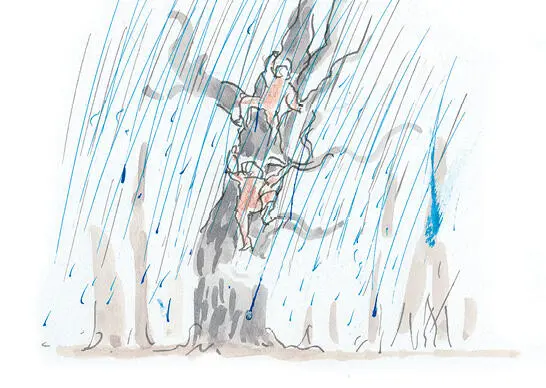
Meanwhile it started to rain, heavy rain that forced them to go up into the nest and cover themselves with the shepherd’s cloak. Miro was content. He clung to Adam, and for the first time he barked happily.
“It’s a good thing we have the cloak to shield us.
Miro will also protect us,” said Adam.
The rain lasted all day and all night. The first time it stopped, they climbed down to see whether the cow and the calf were grazing in the field. They weren’t there, but a small package, wrapped in a rag, was laying under the tree. There were a couple of slices of corn pie in it, a piece of cheese, and dried fruit.
Adam called out enthusiastically, “God sent us Mina.”
“Adam, I’d like to believe in God, too.”
“You have to be patient. Everyone comes to him in their own way.”
“Dad says that faith in God has passed from the world,” said Thomas.
“Thomas, your father is a man of integrity. He is devoted to his students heart and soul. He serves God in his own way.”
“I guess I’ll have to find my own way, too,” said Thomas.
They climbed up to the nest and ate. Since Miro came, Thomas’s mood changed. He no longer sank into sudden sadness. Miro seemed to feel affection for Thomas and let him pet him.
But the nights weren’t peaceful. From time to time they heard the footsteps of someone running away, and sometimes they heard shots. From the distance heavy, dull noises could be heard, sounding like a mixture of lightning and thunder.
While they listened to the rain and the sound of explosions above them, once again they heard a man groaning in pain.
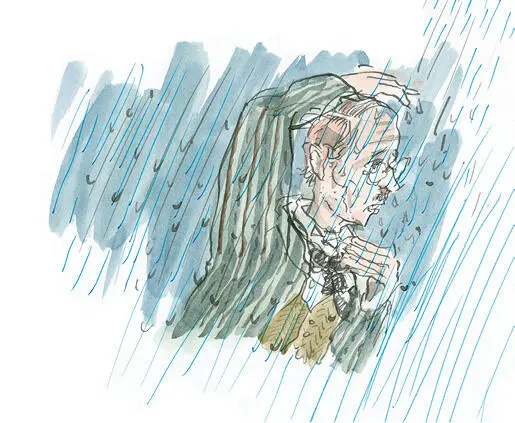
“Let’s go down and see what happened,” said Adam, immediately taking iodine and bandages from his backpack. Thomas took the thermos bottle with him and the remains of the corn pie.
Not far from the nest a man lay, tormented by pain. Adam recognized him right away: the music teacher.
“What happened, Mr. Braverman?” Adam leaned over him.
“Who are you?” he was roused from his pain.
“We’re Adam and Thomas, your students.”
“Sorry,” he said, and his head sank to the ground.
“Are you wounded?” Adam whispered.
“In the leg.”
“We have iodine and a bandage.”
Adam rolled up his pant leg. He could see the blood and the wound despite the darkness.
“A bullet hit me, but it seems to have missed the bone.”
After they washed the wounded area and put iodine on it, Mr. Braverman opened his eyes and said, “Thank you, boys.” Miro kept walking around them, complaining because they weren’t including him in the rescue.
When the first lights filtered into the forest, Mr. Braverman raised himself on his arms and said, “Thank you, boys, for your fine and devoted help. Now it’s daytime, and you have to return to your hiding place.”
“Please drink some water and have a bit of corn pie,” Adam said.
The teacher sipped some water and tasted the corn pie. Then he said, “Dear children, go back to where you were. We’ll meet after the war.”
“Is the war ending?” Thomas asked with a trembling voice.
“The German army is in retreat, and the Russian army is approaching. But for the Jews, there’s no respite. They pursue every Jew who runs away. Where’s your hiding place?”
“In the treetop.”
“You’re smart children. Don’t go out in daylight.”
“Where are you going, Mr. Braverman?”
“I’m going to look for my wife and children. If you run into them, tell them you saw me. I’ll hide under a bush now, and at night I’ll go on my way.”
“If you meet our mothers, tell them we’re in a safe place,” Thomas said, overcoming his shyness.
“Of course. Hurry to your hiding place. You mustn’t be out in daylight.”
Everybody liked Mr. Braverman. He loved music, and he loved children. Everybody felt comfortable with him. He never failed a student. If somebody didn’t have a good ear, he would say, “But your eyesight is probably better than ours. Nature compensates. Sometimes nature is more generous than people.”
Mr. Braverman was a communist. He argued that property should be distributed justly. It was wrong for the rich to have everything, while the poor didn’t have a crust of bread. He suffered because of his opinions. The police used to come to the school and arrest him from time to time, and he would spend a few months in prison. After he signed a statement saying he wouldn’t spread his ideas anymore, they allowed him to teach music again. He would be careful not to express his opinions, but sometimes a hint would slip out — and they would immediately suspend him from the school.
“I like Mr. Braverman. I don’t have a good ear, and my eyesight is poor. Mr. Braverman consoled me by saying, ‘But you think well. Don’t worry. Everyone has his own area.’ A marvelous man,” said Thomas, near tears.
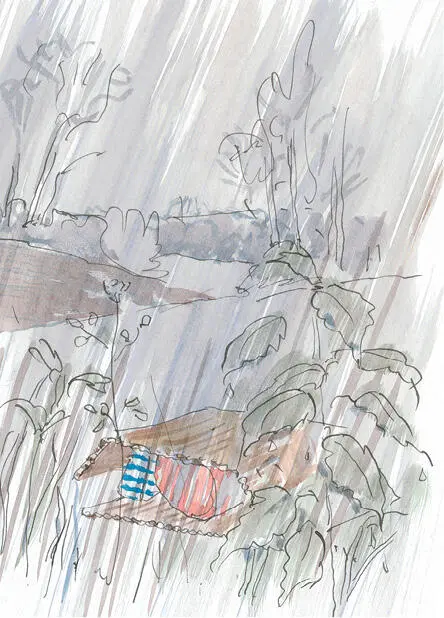
The rain didn’t stop, and shooting sliced into the night and shook the nest. As soon as the rain let up, they went down to see whether the cow and calf were grazing in the meadow. They weren’t. But Mina had left two slices of bread and some cheese. This time they were wrapped in cardboard.
They climbed back into the nest, had their meal, and were happy. Miro was also excited and hopped from Adam’s feet to Thomas’s.
“Thomas, would you please write a little letter to Mina?”
“What should I write?” Thomas asked. “I can’t write ‘Dear Mina.’ No one may know that she has friends. I’ll simply write: ‘Thanks from A. and T.’”
“Maybe you should write, ‘Blessings and thanks from A. and T.,’” said Adam.
“I’ve never used the word ‘blessings,’” said Thomas.
“It’s a beautiful word,” said Adam.
“But not understandable. I’m not used to writing words that I don’t understand. I propose writing, ‘Thanks with all our hearts, from A. and T.’”
“Why are you so precise, Thomas?”
“What can I do? That’s the way I was raised.”
The nights were cold and not quiet. Sometimes it seemed to them that the teacher, Mr. Braverman, was still lying on the grass and groaning with pain. Every once in a while the steps of a man fleeing were heard as he looked for cover in the forest.
How can we help people? Adam asked himself. We have to help people.
Suddenly before his eyes he saw his mother, working in the communal kitchen in the ghetto, serving soup to thin, weak people. When they asked whether there was another crust of bread, she would narrow her shoulders and say, “I have none. Not a crumb is left.” At night she would return from the communal kitchen exhausted and fall onto her bed. Thomas’s parents believed in studying. They taught the Jewish children who had been suspended from school and made sure they did their homework. They said, “They can starve us, but they can’t take our humanity away from us.”
Thomas’s father not only taught the Jewish children who had been suspended from school. He also organized courses in history, literature, and even a class in drawing for adults. From time to time he raised his voice and said, “Barbarity won’t deter us.” Not everyone agreed with him. Some people made fun of him and called him strange names, but that didn’t stop him. Day and night he organized and taught, until he was seized for forced labor.
Читать дальше
